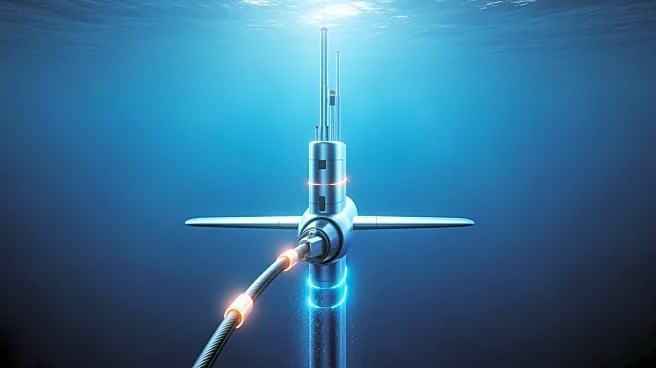What's Happening?
Vodafone Group and Vodafone Ukraine have announced plans to construct a new submarine cable across the Black Sea, marking the first such project in nearly two decades. The Kardesa cable, with an investment of €116 million, will connect Bulgaria, Georgia,
Turkey, and Ukraine, deliberately excluding Russia. This infrastructure aims to provide an additional 500 Tbps of capacity to the region, addressing the limitations of the current aging infrastructure. The project is being executed by Xtera, with the first landing expected in Bulgaria by 2027. The Black Sea, a crucial gateway to the Mediterranean, currently has limited submarine cable infrastructure, making this development significant.
Why It's Important?
The construction of the Kardesa cable is strategically significant as it offers a route that bypasses Russian territory, which is crucial given the geopolitical tensions in the region. This move is expected to enhance Ukraine's position as a key hub for internet traffic between Europe and Asia. The project could potentially reduce the region's dependency on existing routes that pass through Russia, thereby increasing security and reliability for data transmission. This development is likely to have a positive impact on the digital economy in the Black Sea region, fostering growth and connectivity.
What's Next?
The successful implementation of the Kardesa cable could lead to increased investment in the region's digital infrastructure. It may also prompt other countries to consider similar projects to enhance their connectivity and reduce reliance on routes through geopolitically sensitive areas. Stakeholders, including governments and telecom companies, will likely monitor the project's progress closely, as its success could set a precedent for future infrastructure developments in the region.
















